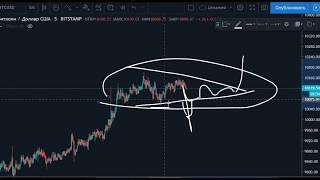Today we will compare Gold vs Bitcoin. Gold and bitcoin have been all over the news in the last year (especially Bitcoin), but we felt a thorough comparison between the two is missing when it comes to deciding how to trade and/or invest in them.
For hundreds of years, gold has dominated the safe-haven asset arena, while bitcoin was launched just over a decade ago and has only achieved widespread recognition in the last few years. Below, we'll compare these two investment options head-to-head:
1. Transparency, Safety, Legality
Gold’s established system for trading, weighing and tracking is pristine. It’s very hard to steal it, to pass off fake gold, or to otherwise corrupt the metal. Bitcoin is also difficult to corrupt, thanks to its encrypted, decentralized system and complicated algorithms, but the infrastructure to ensure its safety is not yet in place. The Mt. Gox disaster is a good example of why bitcoin traders must be wary. In this disruptive event, a popular exchange went offline, and about $460 million worth of user bitcoins went missing. Many years later, the legal ramifications of the Mt. Gox situation are still being resolved.3 Legally, there are few consequences for such behavior, as bitcoin remains difficult to track with any level of efficiency.
2. Rarity
Both gold and bitcoin are rare resources. The halving of Bitcoin's mining reward ensures that all 21 million Bitcoin will be out in circulation by the year 2140. While we know that there is only 21 million bitcoin that exist, It is unknown when all the world's gold will be mined from the earth. There is also speculation that gold can be mined from asteroids, and there are even some companies looking to do this in the future.
3. Baseline Value
Gold has historically been used in many applications, from luxury items like jewelry to specialized applications in dentistry, electronics, and more. In addition to ushering in a new focus on blockchain technology, bitcoin itself has tremendous baseline value as well. Billions of people around the world lack access to banking infrastructure and traditional means of finance like credit. With bitcoin, these individuals can send value across the globe for close to no fee. Bitcoin's true potential as a means of banking for those without access to traditional banks has perhaps yet to be fully developed.
4. Liquidity
Both gold and bitcoin have very liquid markets where fiat money can be exchanged for them.
5. Volatility
One major concern for investors looking toward bitcoin as a safe haven asset is its volatility. One need look only to the price history of bitcoin in the last two years for evidence. At its highest point, around the beginning of 2018, bitcoin reached a price of about $20,000 per coin. About a year later, the price of one bitcoin hovered around $4,000. It has since recovered a portion of those losses, but is nowhere near its one-time high price point.
Besides overall volatility, bitcoin has historically proven itself to be subject to market whims and news. Particularly as the cryptocurrency boom swept up a number of digital currencies into record-high prices around the end of 2017, news from the digital currency sphere could prompt investors to make quick decisions, sending the price of bitcoin upward or downward quickly. This volatility is not inherent to gold for reasons mentioned above, making it perhaps a safer asset.
***
Explore trading and start investing with Capital.com.
CFDs are complex instruments and come with a high risk of losing money rapidly due to leverage. 75% of retail investor accounts lose money when trading CFDs with this provider. You should consider whether you understand how CFDs work and whether you can afford to take the high risk of losing your money.
For hundreds of years, gold has dominated the safe-haven asset arena, while bitcoin was launched just over a decade ago and has only achieved widespread recognition in the last few years. Below, we'll compare these two investment options head-to-head:
1. Transparency, Safety, Legality
Gold’s established system for trading, weighing and tracking is pristine. It’s very hard to steal it, to pass off fake gold, or to otherwise corrupt the metal. Bitcoin is also difficult to corrupt, thanks to its encrypted, decentralized system and complicated algorithms, but the infrastructure to ensure its safety is not yet in place. The Mt. Gox disaster is a good example of why bitcoin traders must be wary. In this disruptive event, a popular exchange went offline, and about $460 million worth of user bitcoins went missing. Many years later, the legal ramifications of the Mt. Gox situation are still being resolved.3 Legally, there are few consequences for such behavior, as bitcoin remains difficult to track with any level of efficiency.
2. Rarity
Both gold and bitcoin are rare resources. The halving of Bitcoin's mining reward ensures that all 21 million Bitcoin will be out in circulation by the year 2140. While we know that there is only 21 million bitcoin that exist, It is unknown when all the world's gold will be mined from the earth. There is also speculation that gold can be mined from asteroids, and there are even some companies looking to do this in the future.
3. Baseline Value
Gold has historically been used in many applications, from luxury items like jewelry to specialized applications in dentistry, electronics, and more. In addition to ushering in a new focus on blockchain technology, bitcoin itself has tremendous baseline value as well. Billions of people around the world lack access to banking infrastructure and traditional means of finance like credit. With bitcoin, these individuals can send value across the globe for close to no fee. Bitcoin's true potential as a means of banking for those without access to traditional banks has perhaps yet to be fully developed.
4. Liquidity
Both gold and bitcoin have very liquid markets where fiat money can be exchanged for them.
5. Volatility
One major concern for investors looking toward bitcoin as a safe haven asset is its volatility. One need look only to the price history of bitcoin in the last two years for evidence. At its highest point, around the beginning of 2018, bitcoin reached a price of about $20,000 per coin. About a year later, the price of one bitcoin hovered around $4,000. It has since recovered a portion of those losses, but is nowhere near its one-time high price point.
Besides overall volatility, bitcoin has historically proven itself to be subject to market whims and news. Particularly as the cryptocurrency boom swept up a number of digital currencies into record-high prices around the end of 2017, news from the digital currency sphere could prompt investors to make quick decisions, sending the price of bitcoin upward or downward quickly. This volatility is not inherent to gold for reasons mentioned above, making it perhaps a safer asset.
***
Explore trading and start investing with Capital.com.
CFDs are complex instruments and come with a high risk of losing money rapidly due to leverage. 75% of retail investor accounts lose money when trading CFDs with this provider. You should consider whether you understand how CFDs work and whether you can afford to take the high risk of losing your money.












Комментарии